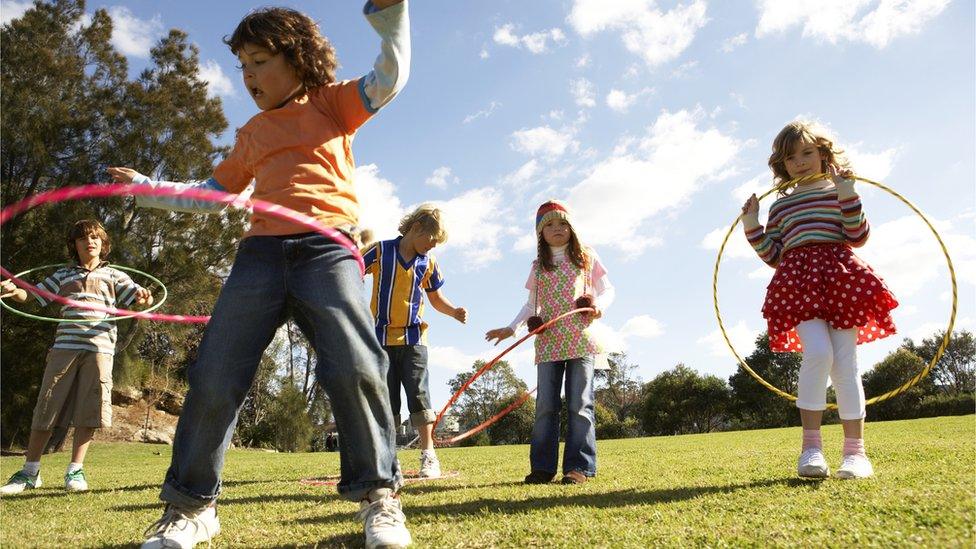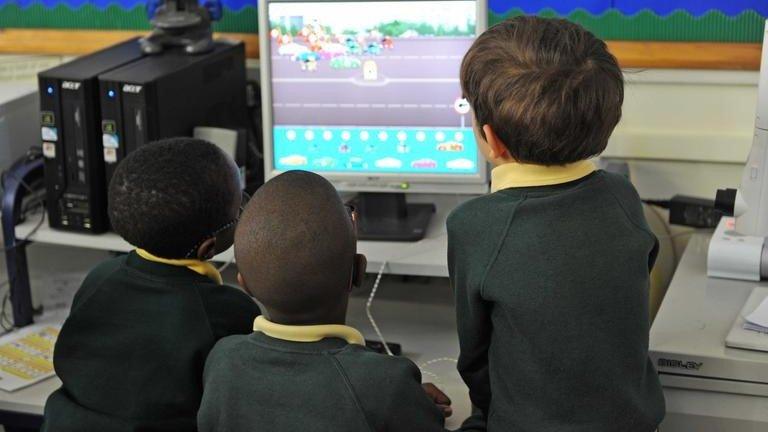Should the school starting age be raised to seven?
- Published

A new campaign is to issue a call for a radical overhaul of early primary school education in Scotland in a bid to improve the long-term physical and mental health of young people.
Upstart Scotland, external believes children should only start school when they are seven years old and have called on the Scottish government to introduce a "kindergarten stage" for youngsters aged between three and seven.
The group, which is made up of teachers and education experts, claims young children should not be taught literacy skills; instead they should be given the opportunity to develop through play.
Scotland is currently one of only six countries in Europe which expects children to start school aged four or five.
The move would bring the Scottish education system into line with those of Finland, Poland and Estonia - three of Europe's most academically successful countries, external.


Age of children starting school in European countries
Four: Northern Ireland
Five: Cyprus, England, Malta, Scotland, Wales
Six: Austria, Belgium, Croatia, Czech Republic, Denmark, France, Germany, Greece, Hungary, Iceland, Republic of Ireland, Italy, Liechtenstein, Luxembourg, Netherlands, Norway, Portugal, Romania, Slovakia, Slovenia, Spain, Switzerland, Turkey
Seven: Bulgaria, Estonia, Finland, Latvia, Lithuania, Poland, Serbia, Sweden.
Source: National Foundation for Educational Research

Sue Palmer, a writer and a former headteacher who chairs Upstart Scotland, said there is a large volume of academic works which supports delaying the start of formal education.
One study which was published last year, external found that children who start school later are less likely to be inattentive or hyperactive in class.
Ms Palmer claims research also points to evidence that kindergartens help children develop their self-confidence and their emotional resilience.
"It's not trying to get children ready for school, it's preparing them for life," she said.
Ms Palmer said that, although the Curriculum for Excellence supports the "developmental" approach favoured by the group, the structure of schooling in Scotland makes it difficult to deliver.
The group believes that only a statutory kindergarten stage would change the ethos of education in the early primary school years.

However one leading education expert has warned that the group's plans are unlikely to receive the significant investment they would require.
Professor Donald Christie, emeritus professor of education at the University of Strathclyde, said: "If you're going to design an education system from scratch, would you have the starting age as young as four and a half? My answer to that would be 'no you wouldn't'.
"Of course at the age of four or four and a half, there are many children who can cope very well with the demands of formal education but equally there are children who are developmentally not ready for that kind of change."
He said that the gap between the academically capable children and those who are less able opens up quickly and creates a burden for teachers.
Where the start of formal education is delayed until children are seven, Prof Christie says that those who would have been capable at four are not affected and the children who would have struggled have had time to mature.
But he added that, in in some Scandinavian countries, the ratio of children to adults in kindergartens is as low as four to one.
"I welcome the fact that the Scottish government has tried to reduce class sizes in the early stages but we are still talking in excess of 20 in the early stages of primary school," he said.
"What you can do with that sort of number is quite different to what you can achieve with four or six children.
"It would take a very substantial investment to ensure we can create the conditions that are similar to that so that we can get the advantage of a kindergarten stage and a later start to school."
Prof Christie adds: "It's an interesting proposal, probably a worthwhile discussion that's going to be fostered.
"There's a lot of evidence in support of the idea but practically, given that we are in a period where resources are tight it might be hard to achieve these things."

Upstart Scotland has not officially launched yet its message is gathering pace among parents and teachers.
A local meeting in Fife last week attracted a crowd of about 100 people; another scheduled to take place in Dundee this week is expected to attract more than 300.
Despite the swell in support, the Scottish government say they have "no plans" to change the school starting age.
A spokesman said: "The Curriculum for Excellence is in place to provide a better and more flexible curriculum for pupils between the ages of three to 18 and it is important they are given every opportunity to flourish within that framework.
"Scottish ministers are confident that the legislation setting out the school starting age in Scotland is appropriate and there are no plans to change it."
- Published12 September 2013
